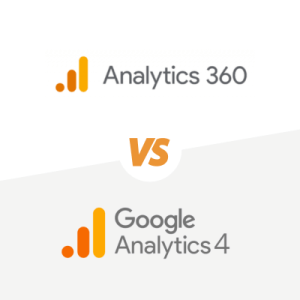The December 2025 Google Core Update Is Complete: What Does It All Mean?
When a Google core update is being rolled out, digital marketers everywhere eagerly wait to…
It’s been a long time coming, but on July 1, 2024, Google will complete its decommissioning of Universal Analytics (UA), paving the way for Google Analytics 4 (GA4) to take centre stage. Since October 2020, GA4 has been the default option for new Google Analytics properties, but UA was still available for existing ones, with marketers and website owners reluctant to make the switch to GA4 themselves. However, all the way back in 2022, the search engine giant announced that it would be shutting down UA in a gradual sunsetting process as its ‘next generation’ GA4 takes over for all things related to website analytics.
Almost a year ago, UA stopped processing hitsWeb page hits were all the rage in the early days of the internet, but have since been replaced by far more granular, valuable data., but users could still access their historical data. In a month’s time, when UA is closed down completely, all past data will be deleted, and users will no longer be able to access it. Your data is crucial for planning your SEO and PPC campaigns. If you’re not prepared, this data deletion could spell disaster, but what does the complete decommissioning of UA actually mean, and how can you prepare for it? Don’t worry, we’ve got it all covered in our blog!
To break things down, here is the timeline of events that spell out the end of UA as we know it.
Our Google Analytics 4 Guide tells you everything you need to know about the future of website analytics.
Google has said that the full and final shutdown of UA will take a week, starting on July 1, 2024. However, you shouldn’t leave your preparation and data migration to the last minute as you may not be able to access your account or data after this point as part of the closedown. What’s more, when the decommissioning is completed, all data will be permanently deleted, and it won’t be recoverable.
It also means that:
It’s out with the old and in with the new, with GA4 offering a more user-centric view of data and using the search engine’s machine learningMachine Learning is the branch of artificial intelligence (AI) that gives computers the ability to learn without being explicitly programmed. technology to provide predictive insights and a cookie-less future.
Ultimately, GA4 is expected to give you better data-driven insights into engagement, conversions, and user behaviour. But what are the main differences between the 2 analytics tools?

These differences are just the tip of the iceberg. For a more in-depth analysis of the main differences between Universal Analytics and Google Analytics, read our helpful blog.
There are 2 important things that you’ll need to do to get ready for the end of UA: you must export any precious data that is stored on the platform, and secondly, you must complete the migration to GA4.
There are 4 ways to export your data from UA based on different scenarios.
If you just need to rescue a few individual reports before UA’s final curtain call, you can manually export the files. Simply choose the report you want to save, choose your settings, and select ‘export,’ picking your desired file type.
Google recommends this as the best export option. All you need to do is install the add on and use the Google UA common reports template to base the export on. Type the view ID of the property and then run the reports.
This is a good option when you need to export large amounts of data. It involves a little bit of technical and coding know-how, but you can use Google Analytics Reporting API to take data from UA and store it in the cloud. Use Google’s quick start guide to help you with this.
Now, this option only applies to Google Analytics 360 users. They have the option to export data via BigQuery. To do this, you will have to enable BigQuery in your Google API console.
If you haven’t completed your migration to GA4 yet, you need to! The good news is that Google has put together some handy migration instructions for users to follow. Once you’re all set up, we recommend getting to know how the new interface works to make the most of your Google Analytics account and future SEO campaigns.
If you’re worried about any aspect of Google Analytics’ decommissioning, then we’re here to help! Our experts can guide you through what needs to be done to complete your GA4 migration and export your data. Book a call with our team before it’s too late!
What is Content Marketing? Download Our How-To Guide Today!
Ever wondered why certain websites appear at the top of Google’s results page when you search for something? That’s no…
Without the correct tactics, your website doesn’t have a chance of appearing prominently on search engine results pages. Because if…
Comments (1)